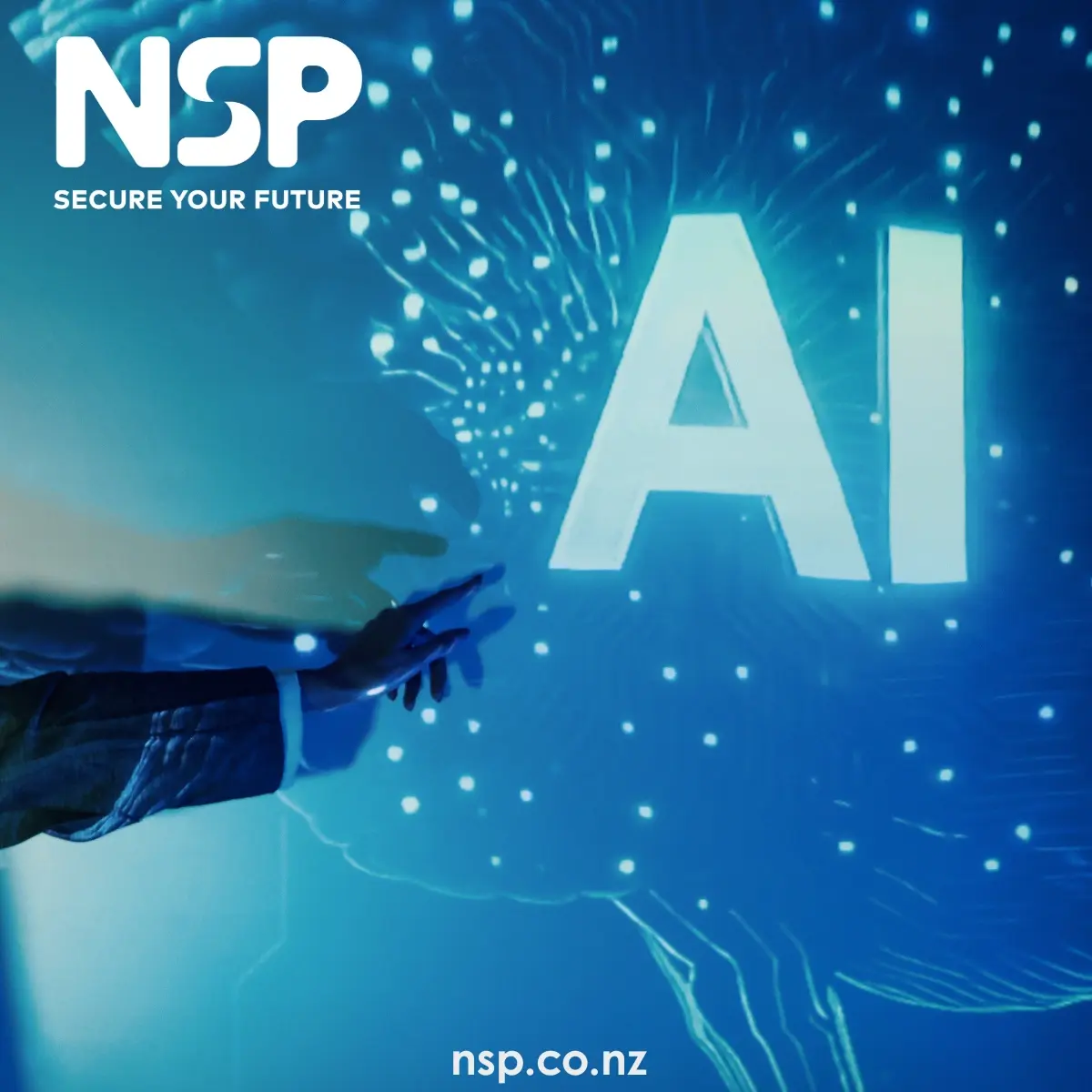How New Zealand SMEs Can Lead with AI | Insights for Business Success
Dayna-Jean Broeders
08 September 2025
9 min
ReadDon't Watch from the Sidelines: How AI Leaders Are Setting the Pace
AI is a business tool fundamentally transforming how organisations operate, innovate, and compete. From automating tedious manual processes to unlocking entirely new revenue streams, AI is rewriting the rules of growth across every industry.
For businesses across New Zealand, you have a choice, sort of: lead the change or watch from the sidelines.
From a recent roundtable we hosted, we discovered valuable insights for any business leader ready to embrace their AI transformation journey.
Three critical success patterns
1. Problem-first thinking is better than technology-first approaches
Instead of exploring impressive AI tools and then hunting for applications, winning companies identify their most time-consuming, manual, or error-prone processes first, then evaluate which AI solutions can address those specific challenges most effectively.
This problem-first approach leads to implementations that deliver measurable business value from day one, while technology-first thinking often results in expensive pilot projects that generate excitement but fail to move the business forward meaningfully.
2. Governance enables rather than constrains innovation
Contrary to popular belief, we've discovered that concerns about AI governance aren't slowing successful adoption, but rather the lack of governance frameworks is what’s actually holding businesses back. Companies making rapid AI progress have established clear boundaries that enable confident experimentation.
These organisations implement basic governance structures including acceptable use policies, data quality standards, and regular review processes. Rather than constraining innovation, these frameworks provide the psychological safety teams need to experiment boldly and learn quickly.
3. Cultural readiness determines implementation success
Perhaps most importantly, we've observed that organisational culture, and not technical capability, is the primary determinant of AI success. The companies achieving transformational results have invested in three key cultural foundations:
• Psychological safety that encourages experimentation without fear of failure
• AI literacy programs that build understanding across all levels of the organisation
• Change management processes that engage existing teams rather than threatening their roles
AI Success Stories in New Zealand
While global leaders demonstrate the scale of AI’s potential, we’re also seeing encouraging adoption right here in Aotearoa. Local businesses are showing how practical AI implementation can deliver real impact:
• Xero - Already leveraging AI for features like automated bank reconciliations and machine learning to detect anomalies in transactions, helping SMEs streamline their financial management.
• ANZ New Zealand - Trialling generative AI assistants to help staff improve productivity, reduce manual workload, and respond to customer inquiries faster.
• MACSO - Auckland startup MACSO is developing AI-enabled audio sensors to monitor animal respiratory health on farms.
These are just some examples that highlight that New Zealand companies aren’t just experimenting, they’re already delivering measurable outcomes. For SMEs, the path to success is less about massive infrastructure and more about starting small, targeting one business problem, and scaling from there.
New Zealand industries have success at their fingertips
New Zealand businesses are well-positioned to capture AI advantages, though most remain in early exploration phases.
• Healthcare organisations are investigating AI applications for diagnostic support and patient triage systems
• Manufacturing companies are exploring predictive maintenance and supply chain optimisation solutions
• Professional services firms are piloting document processing and automated reporting capabilities
• Startups are experimenting with AI-enhanced customer service and content creation tools
The competitive reality
While local businesses explore possibilities, international competitors are already implementing AI solutions that create compound advantages over time. Early adoption enables:
• Continuous improvement through data collection that enhances AI performance
• Accelerated expertise that speeds future implementations across the organisation
• Enhanced customer experiences that build loyalty and market share
• Efficiency gains that fund further innovation and competitive positioning
High-Value AI applications for SMEs
The most successful AI implementations among small and medium enterprises focus on specific, measurable improvements across key business functions:
Customer experience enhancement
-
Intelligent chatbots handling common inquiries with seamless escalation to human agents when needed
-
Personalised recommendations increasing sales conversion rates and customer satisfaction scores
-
Automated follow-up systems improving customer retention through timely, relevant communications
Operational efficiency gains
-
Document processing reducing manual data entry while improving accuracy and speed
-
Inventory optimisation balancing stock levels with sophisticated demand forecasting
-
Scheduling automation maximising resource utilisation while reducing scheduling conflicts
Marketing and sales support
-
Content generation creating professional marketing materials efficiently and consistently
-
Lead qualification prioritising sales efforts on highest-potential prospects using data analysis
-
Campaign analysis optimising marketing spend based on real-time performance data
Financial and administrative excellence
-
Expense categorisation automating bookkeeping processes with improved accuracy
-
Financial forecasting enhancing planning accuracy through sophisticated data analysis
-
Compliance monitoring tracking regulatory requirements automatically with alert systems
Understanding and managing AI implementation risks
Successful AI adoption requires honest assessment of both opportunities and challenges that lie ahead.
Common implementation pitfalls to avoid
-
Tool-first thinking that prioritises impressive technology over solving real business problems
-
Inadequate governance leading to security vulnerabilities, compliance issues, or quality problems
-
Insufficient training resulting in poor team adoption and suboptimal business outcomes
-
Unrealistic expectations about AI capabilities, implementation timelines, and immediate results
Strategic considerations for success
-
Data quality requirements necessary for effective AI performance and reliable results
-
Integration challenges with existing systems, workflows, and business processes
-
Change management needs essential for successful team adoption and cultural transformation
-
Ongoing maintenance requirements for optimisation, updates, and continuous improvement
The path forward: Leading in the AI era
The AI transformation is accelerating globally, and New Zealand businesses face a pivotal choice: develop AI capabilities strategically now, or risk falling behind international (and local) competitors who are already implementing these tools with measurable success.
The organisations that will thrive are those approaching AI adoption thoughtfully, starting with clear business problems, establishing appropriate governance frameworks, and building internal capabilities systematically over time.
Success won't come from perfect strategies or access to cutting-edge technology. It will emerge from practical implementation, continuous learning, and smart adaptation to rapidly evolving AI capabilities that can transform business operations.
The conversation about AI in New Zealand business has definitively shifted from "whether" to "how" and "when." The window for strategic advantage remains open, but it's narrowing as global competitors advance their AI implementations and capture market share.
The choice remains: lead the change or watch from the sidelines.
Frequently Asked Questions
1. How do I know if my business is ready for AI implementation?
Your business is ready for AI if you can identify specific, time-consuming manual processes that create bottlenecks or errors. You don't need advanced technical infrastructure, many AI tools integrate with existing systems like Shopify, QuickBooks, or standard CRM platforms. The key readiness factor is having leadership commitment to support team training and process changes.
2. Do I need technical staff or can existing teams manage AI tools?
Most modern AI business tools are designed for non-technical users. Your existing team can typically manage implementation with proper training. However, having one person become your "AI champion" to coordinate training and troubleshoot issues significantly improves success rates.
3. What are the biggest risks of AI implementation for small businesses?
The main risks are: choosing tools before identifying problems, inadequate staff training leading to poor adoption, and lack of data governance creating security vulnerabilities. These risks are easily managed with proper planning and phased implementation approaches.
4. How do I measure ROI from AI investments?
Focus on time saved, error reduction, and process efficiency improvements. For example, if AI reduces invoice processing time from 4 hours to 30 minutes weekly, calculate the hourly cost savings. Many businesses see 300-500% ROI within the first year through productivity gains alone.
5. Should I wait for AI technology to mature further before implementing?
AI tools available today are already mature enough for most business applications. Waiting means missing opportunities to build data assets, team expertise, and competitive advantages. The companies succeeding now started with imperfect implementations and improved over time, perfect timing doesn't exist in rapidly evolving technology environments.
Ready to Start Your AI Journey?
At NSP, we help New Zealand businesses move from talking about AI to getting results with AI. Whether you’re just exploring possibilities or already experimenting, we’ll guide you through the practical steps that make adoption successful.
Our AI Governance & Compliance service ensures your projects are safe, ethical, and aligned with business outcomes. We’ll help you:
-
Identify the right starting point - focus on the processes where AI will deliver measurable value fastest.
-
Build governance frameworks - create the guardrails that give your teams confidence to experiment and scale.
-
Develop cultural readiness - from AI literacy to change management, we make sure your people are on board.
-
Plan for ROI - design a roadmap that ensures efficiency, compliance, and sustainable growth.
You don’t need to be a global enterprise to leverage AI. You just need the right partner to help you take the first steps, avoid the common pitfalls, and build a foundation for ongoing innovation.
Book a free consultation with NSP today and start your AI journey with a trusted partner who understands the NZ market, your industry, and the realities of SMEs.
CATEGORY
- Article (98)
- Cybersecurity (50)
- Cyber Security (44)
- Digital transformation (31)
- Managed services (30)
- Awareness and education (23)
- Cloud (19)
- IT Risk (14)
- modern workplace (12)
- Collaboration (11)
- Cyber Smart Week (11)
- AI (9)
- Breach (9)
- Backup (8)
- Remote Workers (8)
- microsoft (8)
- video (7)
- copilot (6)
- network performance (6)
- Future of work (5)
- Vulnerability Assessment (5)
- Breech (4)
- Business strategy (4)
- Cyber (4)
- Managed Detection & Response (MDR) (4)
- Microsoft Teams (4)
- 0365 (3)
- CISO (3)
- Culture (3)
- Best Practice (2)
- Business Goals (2)
- CASB (2)
- CIO (2)
- COVID-19 (2)
- Charity (2)
- Construction Industry (2)
- Feed the Need (2)
- Friction-less (2)
- Governance (2)
- IT budget (2)
- Penetration Testing (2)
- Tabletop Exercise (2)
- vCISO (2)
- Assets (1)
- Azure (1)
- BYOD (1)
- Christmas (1)
- Co-pilot (1)
- Deserving Family (1)
- E-Waste (1)
- EPP (1)
- Healthcare (1)
- KPI (1)
- Law Industry (1)
- Legal Industry (1)
- Metrics (1)
- News (1)
- Real Estate Industry (1)
- Restore (1)
- artificial intelligence (1)
- case study (1)
- health IT consultant (1)
- health it (1)
RECENT POST
16 Feb 2026
07 Jan 2026
Let’s stay in touch!
Enter your details below to stay up-to-date with the latest IT solutions and security measures.

.webp)


